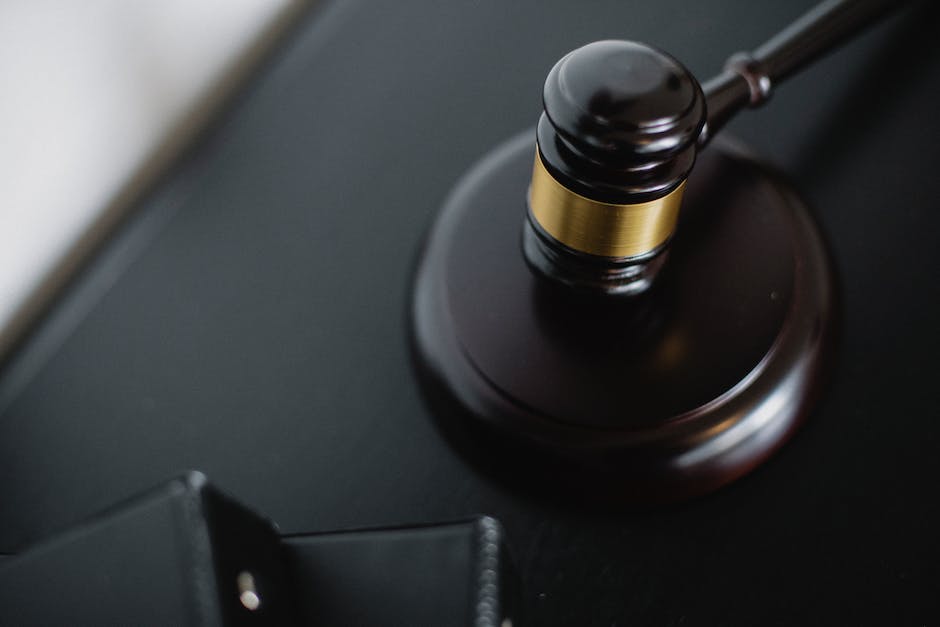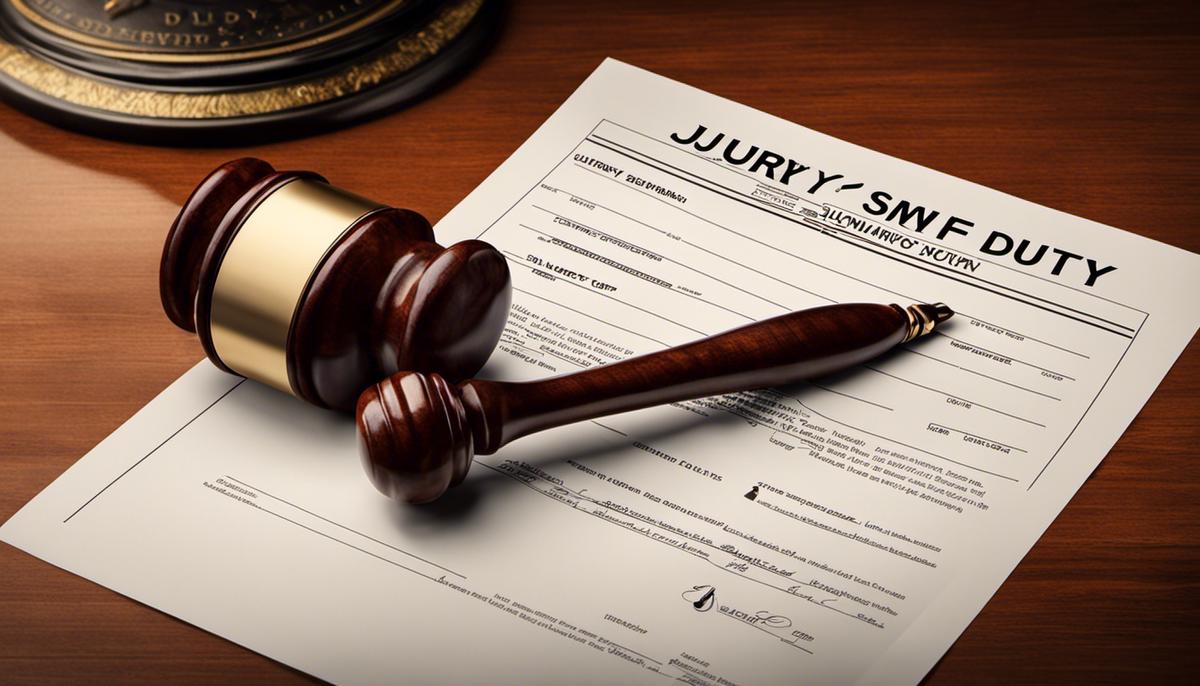Being selected for jury duty is a privilege and responsibility that allows ordinary citizens to actively participate in the judicial process, a cornerstone of our democracy. This crucial task requires diligence, preparedness, and an open mind. Along with the sense of civic duty it evokes, jury duty may also bring a flurry of questions and uncertainties, particularly for first-timers. This guide is designed to elucidate a few fundamental aspects of serving as a juror – understanding your Jury Duty Summons, familiarizing yourself with the judicial system, and preparing adequately for the trial day.
Table of Contents
Understanding the Jury Duty Summons
Unraveling the Details: Decoding Your Jury Duty Summons
Embarking on the path of entrepreneurship involves wearing many hats and continuously learning across various disciplines. One such space that requires a keener understanding revolves around civic duties, like responding to a Jury Duty Summons. This crucial legal obligation might seem daunting or complex at first. However, by breaking down the key components, the process simplifies into manageable parts.
The first point of concern should be identifying the juror number. This special identification number is the essential key that unlocks the mystery wrapped around your summons. Generally located at the top of the document, it is an individual-specific number that assists in tracking your placement in the jury call-in procedure or the follow-up process.
Next, observe the reporting date, time, and location mentioned on the summons. Arriving punctually at the right place is beneficial for efficient process flow and exhibits a commendable sense of responsibility.
Then, focus on the detailed instructions regarding how to confirm attendance. These guidelines may direct you to either call in to confirm or login to a specified website. Following these instructions to the letter is crucial to avoid any legal repercussions.
An equally important detail is the nature and expected length of jury service. The summons provides an estimated duration for the jury duty, although the exact length tends to fluctuate. Understanding this commitment’s timeframe can give a decent headway to plan and make necessary work arrangements.
The summons typically outlines the potential exemptions or disqualifications to jury duty as well. If any of these clauses apply to you, take immediate action to inform the court. This part of the process ensures you wouldn’t face unnecessary pressure of duty while qualifying for a valid exception.
Next, be aware of your rights and responsibilities as a juror – an accidental violation can land you in legal trouble. A thorough understanding of what’s expected can keep you safe and enhance your jury service experience.
Finally, pay attention to the compensation details for jury duty. While the pay could not be considered lucrative, it’s essential to understand these stipulations, at least for documentation and tax purposes.
Navigating your jury duty summons may not be as exciting as disrupting a market niche with a groundbreaking concept, yet it’s an integral part of your civic commitments. Embrace this with the same zeal you employ in your business endeavors. Remember, the core of this process is based on two of the most important elements also essential in the business world: responsibility and integrity.

Researching the Judicial System
Harnessing the Power of the American Judicial System: Making the Most Out of Your Jury Duty Experience
Understanding the American judicial system before attending jury duty is not just an advantage, it’s a necessity. It is paramount to comprehend the weight of the role you play and the function you serve in upholding our nation’s justice. The mechanics of our legal framework can be intricate and complex. Still, obtaining a basic comprehension beforehand can exponentially enhance your jury experience and promote the overall effectiveness of the trial process.
Unraveling this judicial network begins with knowledge of the two types of cases you may encounter: criminal and civil. In criminal cases, you will help decide whether an individual violated the law, while civil cases involve a dispute, typically concerning monetary damages. Knowing which type you’re part of shapes your mindset and prompts appropriate decision-making.
Understanding jury nullification is another essential aspect in the sea of legal terms. By definition, it is the idea that a jury can rule a defendant not guilty, even if the law concludes otherwise. This concept underscores the power and authority the jury possesses, demonstrating the pivotal role every juror plays in the legal process.
Familiarity with court procedures adds another layer of preparedness. Court procedures involve the order of events, from opening arguments to evidentiary presentations, cross-examinations, closing arguments, and finally, deliberation. By understanding what to expect, you’re able to move seamlessly through each phase, intently focusing on the case at hand instead of wrestling with potential courtroom surprises.
The process of deliberation being another essential point, helps you gauge how decisions are made in the jury room. You will comprehend that it’s not just about personal opinions, but a collective agreement based on comprehensive discussion, balanced consideration, and respect for the views of your fellow jurors.
Finally, understanding the principle of beyond reasonable doubt before jury duty cannot be overemphasized. This is key, especially in criminal cases, as it means the evidence presented must be so compelling that there’s no plausible reason to question an accused’s guilt. Being aware of this upfront allows each juror to set personal biases aside, ensuring a fair judgment.
Remember, the backbone of the American judicial system rests on the moments spent in the jury box – an honorable service to your community. Each learned term, every understood process, contributes to the quality of justice served. And as you dive into this journey, remember that knowledge transforms the seemingly intimidating into the manageable and grand.
Jury duty is not just an obligation, it is a privilege. So let’s embrace this commitment and remember: the strength of our nation’s justice system is as solid as our commitment to understanding it.

Preparing for the Trial Day
Leveraging Necessary Preparation for Trial
Trial day is potentially overwhelming if the necessary steps are not undertaken to prepare appropriately. There are significant actions that one should take after understanding their responsibilities, the actuality of jury duty, comprehending court principles, procedures, and more. So, what should you focus on next?
Firstly, choosing suitable attire for court proceedings is crucial. Clothing should exemplify respect for the court’s solemnity and severity, with business or business-casual attire generally accepted as appropriate. A mindset that considers court as equivalent to a professional business setting will guide suitable wardrobe choices.
Focus also should be on ensuring emotional readiness. Attending a trial can evoke strong emotions, especially in more dramatic or intense cases. It’s sensible to mentally prepare for the wide array of feelings that could be experienced during proceedings. Self-awareness and understanding can help ensure any emotional reactions do not compromise the duty of impartiality.
Ensuring a clear mind and focus on the day is assisted by having personal affairs in order prior. Address any issues or situations that could serve as distractions. It’s also sensible to inform any necessary parties of your potential unavailability for the duration of the trial, including employers or educational institutions.
Being prepared to actively listen and take notes is also key. While note-taking isn’t mandatory, it’s often helpful in maintaining focus, remembering information, and staying engaged. Cases can be complex, and these aids promote better understanding and contribute to informed decision-making.
Deeper knowledge of legal terminology can also be advantageous. While not required, understanding legal jargon can add a layer of clarity and confidence during the trial. Engaging with simple legal resources or glossaries beforehand can make a significant difference.
Finally, it’s essential to maintain an unbiased and open mind throughout. As a juror, your duty is to deliver a verdict based exclusively on case evidence and not be coloured by personal beliefs or emotions. Always remember the integral role played in ensuring justice is equally distributed and the crucial contribution to the American legal system.
To conclude, sufficient preparation for trial day is a multi-faceted but attainable task. A precise and scrutinized attention to appearance, emotional readiness, personal affairs, active engagement, legal language familiarity, and reflective impartiality can fortify a juror’s confidence, understanding, and ultimately, participation in the pursuit of justice.

Armed with this knowledge, you can approach your stint as a juror with a more rounded perspective. By understanding your Jury Duty Summons, diving into the mechanics of the American judicial system, and properly preparing for your trial day, you’re enabling yourself to fulfill this role with confidence and due dedication. Remember, as a juror, your role is pivotal in upholding the principles of justice in our society. Each case you deal with is unique, and your attentiveness, impartiality, and commitment can make a significant difference in the outcomes.

Matt Smith is a seasoned journalist and author whose expertise spans across the dynamic realms of Politics, Gadgets, Gaming, and a plethora of general interest topics. With a Master’s in Political science and tech pedigree shaped in Silicon Valley, Matt brings a wealth of knowledge and a critical eye to everything he writes.
Politics: Matt offers sharp political commentary, drawing from his experience as a political analyst and his academic rigor.
Gadgets: His tech insights are grounded in real-world experience, having been on the front lines of innovation with a degree from Caltech.
Gaming: A respected voice in gaming, Matt’s reviews and trend analyses are a testament to his deep involvement in the gaming community.
General Topics: From science to culture, Matt’s writing spans a broad spectrum, engaging readers with a blend of expertise and relatable prose.
Engage with Matt’s compelling content for a fresh perspective on the issues at the forefront of today’s discourse.

